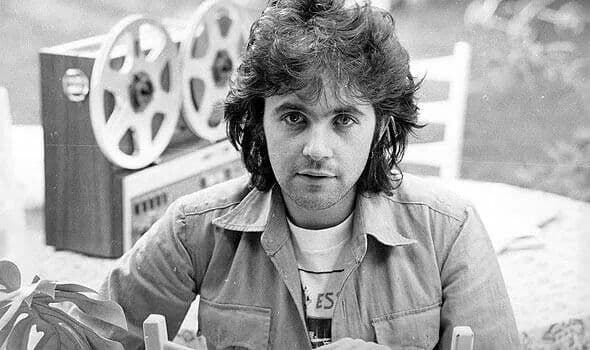
The Fleeting Majesty of a People’s Idol: A Retrospective on a Star That Burned Too Bright
There are certain moments in the history of music and theatre that defy the usual boundaries of popular culture, moments when an album transcends its form and becomes a phenomenon. The 1978 original London production of the musical “Evita” was one such flashpoint, and right at the heart of its tumultuous energy was the multifaceted artist David Essex. A celebrated teen idol and pop star with chart-toppers like “Gonna Make You a Star” and “Hold Me Close,” his casting as the revolutionary narrator, Che, was a stroke of genius that lent a streetwise, rock-and-roll credibility to Andrew Lloyd Webber and Tim Rice’s operatic masterpiece. The song “High, Flying Adored,” though a crucial and emotional cornerstone of the show, was released as the B-side to Essex’s major hit, “Oh What a Circus,” in 1978.
Chart Position and Context
While “Oh What a Circus”—a different song sung by Essex in the role of Che—soared to a remarkable Number 3 on the UK Singles Chart in 1978, “High, Flying Adored” did not chart independently as an A-side. Instead, it rode the coattails of its commercially successful counterpart as the B-side of the single. This positioning is profoundly symbolic of its role within the musical itself: it is a pivotal, yet quietly powerful moment, an analytical piece of commentary that supports the central, louder spectacle of Eva Perón’s story. It was drawn from the Original London Cast Recording of “Evita,” a recording that captured the magic of Essex alongside the sensational Elaine Paige as Eva. The musical itself was a landmark cultural event, opening at the Prince Edward Theatre and running for years, forever cementing this particular rendition of the score in the minds of a generation.
The Story and Meaning: A Star Under Scrutiny
The story woven into “High, Flying Adored” is the very fabric of the musical’s dramatic tension. It takes place at the zenith of Eva Perón’s power, as she dances at the Inaugural Ball, a glittering trophy beside her newly elected husband, Juan Perón. The song is sung primarily by Che (played by David Essex), and it’s a moment of piercing, cynical clarity amid the glamour. Che observes the newly-minted First Lady, not with admiration, but with a weary skepticism about the price of her dizzying ascent.
The meaning is multi-layered. On one hand, it’s a direct challenge to Eva, a voice of the people she claims to champion, questioning the authenticity of her devotion and the morality of her methods. The lyrics, “And how dare you try to compete / When you know that you can’t survive out in the street,” are a chilling reminder of the poverty she left behind and a prophecy of her eventual, fleeting nature. But there’s also a reluctant awe, a recognition of the sheer will and charisma it took for a girl from the provinces to become “high, flying, adored.” It’s an intoxicating mix of critique and captivation—a perfect metaphor for the conflicted feelings the working-class held for Eva. Essex’s delivery, with its signature blend of earnest rock tenor and theatrical gravitas, captures this ambivalence beautifully, making the listener both judge and captivated admirer of the woman on the pedestal.
An Emotional Look Back
For those of us who remember the late 1970s, this era was a transitional one—a move away from the glitter of glam rock and the earnestness of singer-songwriters toward something more complex, more theatrical. David Essex was a familiar, handsome face, a working-class hero who had made it. To hear his voice as Che—the conscience of Argentina—was a powerful experience. It was like seeing a familiar, beloved friend take on a serious, vital role and execute it with spectacular passion.
When we hear the soaring, almost desperate melody of “High, Flying Adored,” it doesn’t just transport us back to the theatre seats of 1978; it reminds us of the time in our own lives when the cost of ambition and the fleeting nature of fame were perhaps becoming clearer. We, too, were watching our own ‘idols’—in music, in politics, in life—rise and fall. The song is a beautiful, melancholic question mark hanging over success, a pause in the exhilarating ride to ask: Is it worth it? How long can you stay up there before the fall? It evokes a profound sense of nostalgia, not just for the musical itself, but for a moment when a pop star—our David Essex—lent his voice to a narrative about power, adoration, and inevitable decline, creating a piece of art that still resonates with a quiet, reflective intensity decades later.